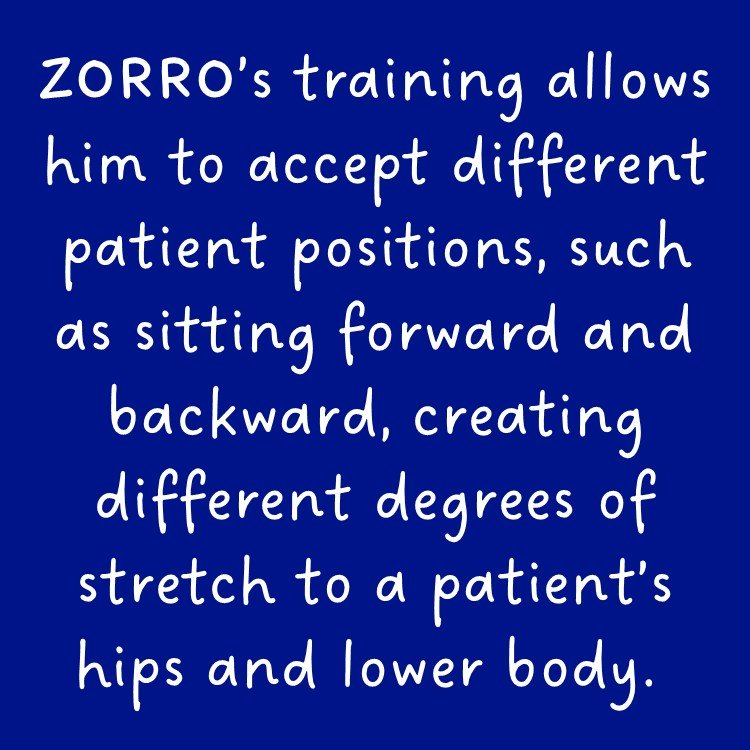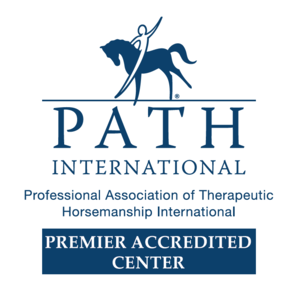“Little Bit was one thing I wasn’t going to let go.” —Ford’s Mom Effie
“Failure to thrive” was the first diagnosis Effie and Casey heard while being consumed with worry—mentally, emotionally, and physically—searching for reasons why their newborn wouldn’t take nourishment, whether from Effie or a bottle. He was starving. Effie and Casey quickly learned the right questions to ask and continually pushed for answers. Despite Ford finally starting to gain weight, the challenges they hadn’t anticipated just weeks before still remained, leading to the discovery that Ford has a rare genetic syndrome.
Typically developing three-year-olds can talk, walk, sit up on their own, play with toys, use the toilet, and eat independently—all things that Ford could not do at that age. Everything he did, including feeding through a tube, required adult help. There weren’t any crackers, breakfast cereal, or swim lessons for Ford.
Casey and Effie brought Ford to Little Bit Therapeutic Riding Center when he was three years old, simply hoping for any kind of progress. They were looking for a different kind of therapy environment with exposure to animals and the outdoors, and more importantly, a type of therapy he would enjoy and look forward to—a place where patients can pick blackberries, brush horses, and wave to birds.
Ford’s Little Bit team includes occupational therapist Christina, a Little Bit horse, a staff horse handler, and two dedicated volunteers whom he looks forward to interacting with each week. When he arrived at Little Bit, he had little core strength, was unable to sit up independently whether in a chair or on a horse, let alone stand, and had limited use of his hands. Just getting Ford into a car seat, carrying him, and changing diapers were daily challenges, partly because his leg muscles were so tight and painful.
First Gigi, who is still pictured above Ford’s bed today, and now Zorro, were chosen as his partners based on Ford’s abilities and treatment goals at the time. Gigi’s smooth and gentle movement was perfect for Ford until he soon built up enough core strength and stretching ability to move on to Zorro. Zorro’s width provides just enough stretch for Ford’s tight legs but not too much, and Zorro’s body heat on Ford’s legs helps, too. Effie shared, “Nothing opens up his legs the way sitting on a horse does. . . he’s visibly more comfortable . . . he’s in less pain.”
Today Ford uses small stirrups that he can push up on to sit straighter. While Zorro stands still, Ford works on shifting his weight forward to reach for a toy, slightly standing up in the stirrups. Therapist Christina mentions, “For kids who are not standing and walking regularly, it’s important to put weight into their legs for their long-term bone health.” Perhaps some day Ford will be able to safely stand in the stirrups while Zorro is moving. For now, Christina focuses on Ford’s large and refined movements and the transitions between them.
When asked about the gains Ford has made due to Little Bit therapy, Effie shared, “Core strength is definitely number one.” His gains in core strength make it easier for his parents to pick him up and transfer him. A stronger core allows him to adjust his sitting position on his own—no more sinking down onto his back while in a chair! Today, he has excellent control of his wheelchair, and Casey and Effie joke, “Perhaps a bit more than we would like because he is a daredevil.”
Second, Effie shared, “Ford has had severe fear and anxiety at other medical appointments until last year. Perhaps Little Bit is a factor due to the positivity there.” She recalled a time when, for a few months, they dropped all other services that weren’t working well for Ford. “Little Bit was one thing I wasn’t going to let go.”
Early intervention is so important, since childhood is the time when our brain makes a greater number of new pathways. Ford’s brain didn’t sense what normal movement felt like until he first partnered with Gigi. His therapist, Christina, adds, “The movement, steps, and speed of the horse mimic the human walk. When our spine is straight, our brain can process a lot more information. His brain is getting a lot of information about what a normal human walk feels like.”
This movement, like normal human walking, combined with the stretching and strengthening that are part of therapy on horseback, make Little Bit therapy unique. Ford’s most important therapy needs are naturally combined into one type of therapy at one location.
To Ford, Little Bit therapy doesn’t seem like work. “Little Bit gets him the therapy he needs in a way that is enjoyable for him. It’s something he looks forward to. Finding different ways to incorporate therapy, and staying happy, is so important to making progress,” Effie said. In those especially challenging moments when Ford needs to take a break, he uses the sign Christina taught him, communicating clearly and avoiding deep frustration.
Today, Ford is six years old, but of course he won’t always be a child. Many parents of young children with disabilities try not to dwell on concerns about the future; the day-to-day challenges and the uncertainty is already a lot to think about. For Casey, “I spend little time thinking about the future, but it’s always present. There are small moments when I realize we need to plan. It’s always there when I pick up Ford. How is this going to work when he’s 50 pounds heavier? How am I going to bathe him? It alters our thought process and decision making. I hope someday to have a conversation with my boy beyond him just saying a word or two. I hope he learns to read—I really, really hope.”
For Effie, “I want people to genuinely love and want to be with Ford and care for him, that he has real buddies for the rest of his life.” With emotion in her voice, Effie recalled hearing Casey sing to Ford, “The greatest thing you'll ever learn is just to love and be loved in return.” She continued, “You can go through your life mourning some of the things he can’t do, but the most important thing you can do is just love.”
Effie and Casey agree, “It’s so important to be able to go through this process and not feel like your life is just taking care of the disability. Ford looks forward to Little Bit every week—it fills Ford’s cup. However, it’s not just for Ford, it’s for families. Little Bit is us getting to break out of a typical therapy environment and feel a bit normalized. It’s ok to figure out different types of therapies that might seem unconventional. Little Bit is capable, competent, and qualified to take care of kids like Ford.”
♥ Thank you to Ford, Effie, and Casey for sharing their family’s story with all of us.
Thank you to Ford’s Little Bit Team.
Thank you to Steve Birds Photography.
Written by Sharon Soldenwagner









